Lotto Soudal's Marc Sergeant: We cannot lower the bar
Belgian Week - Team boss on a best ever season, Belgian identity, and a promising future
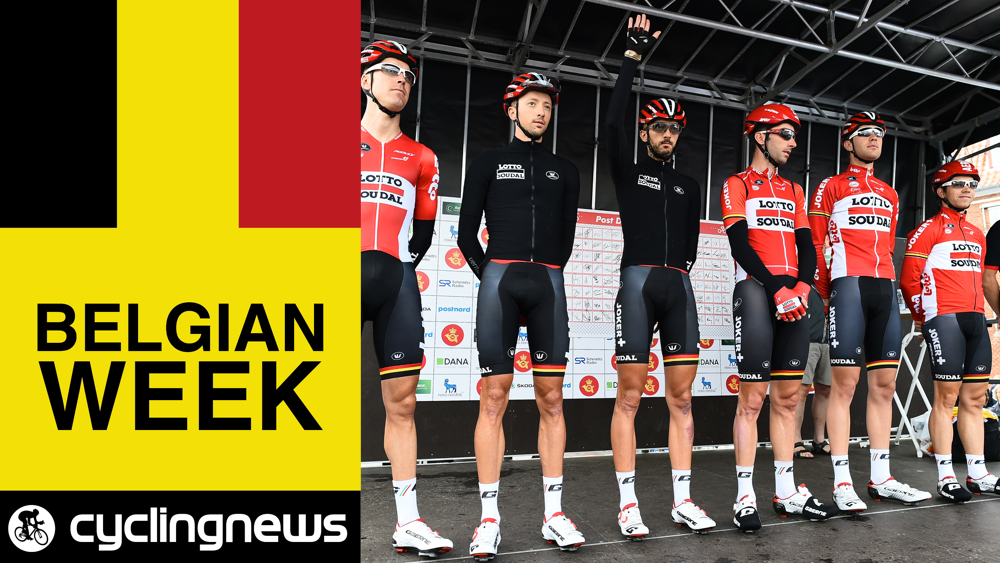
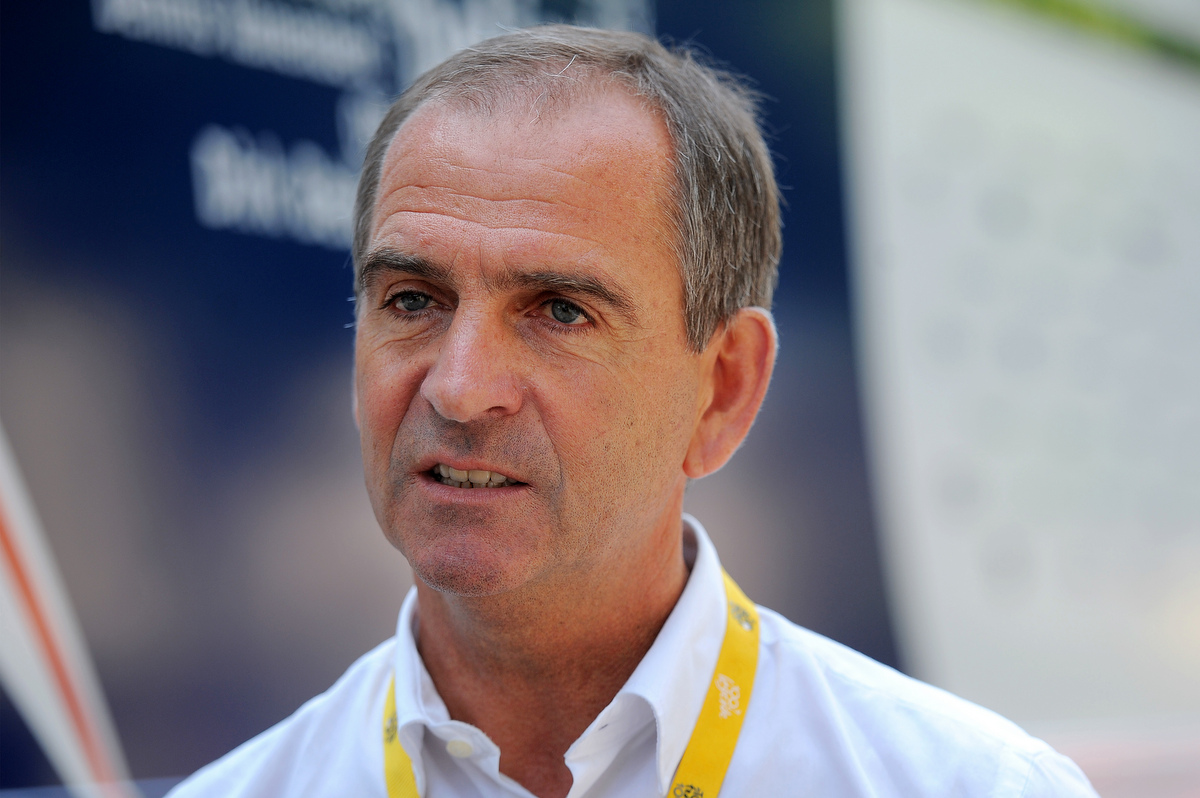
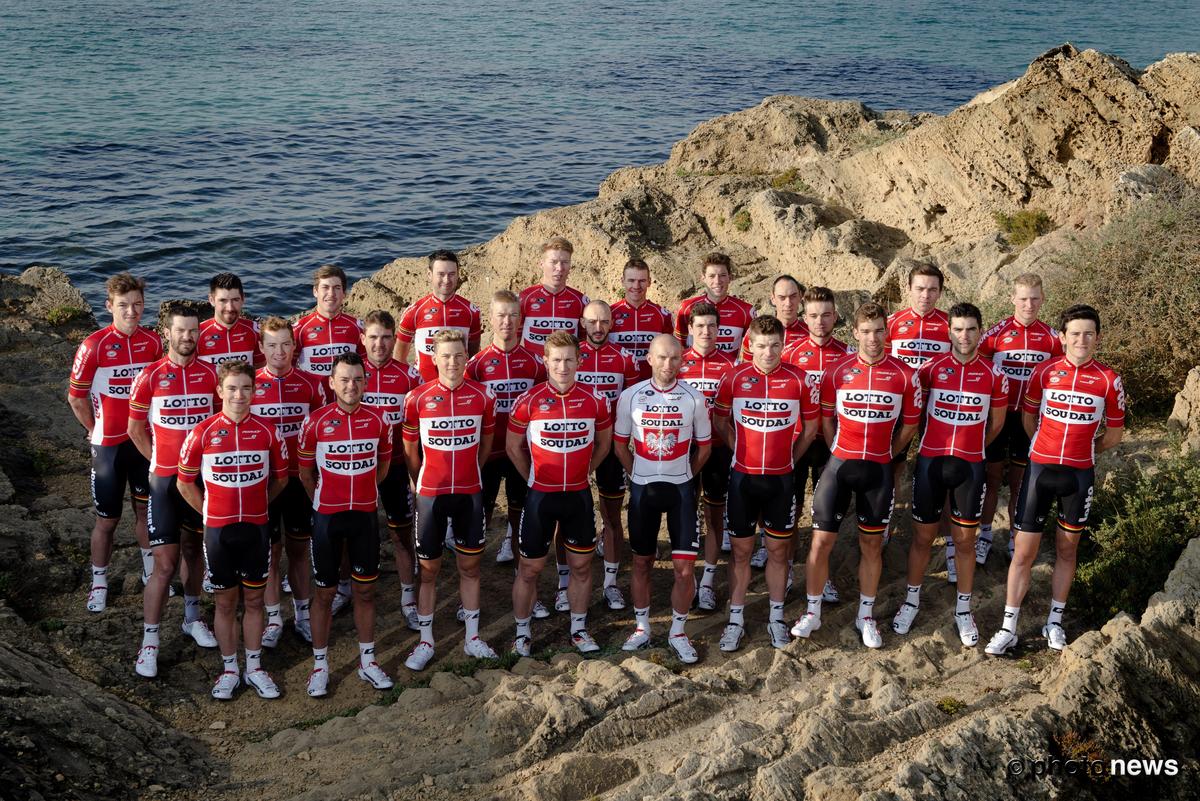
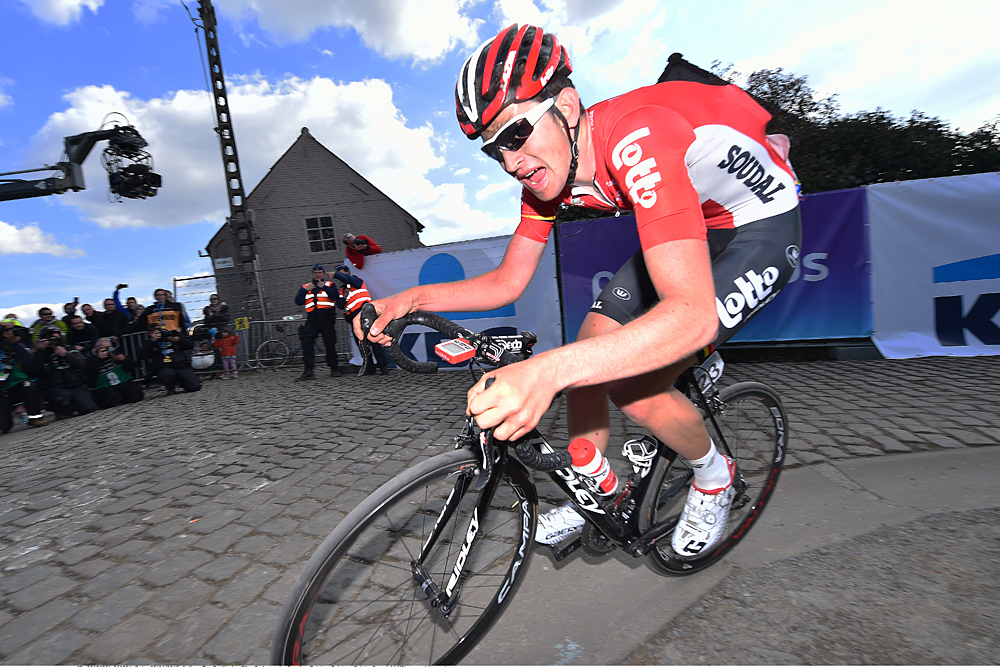
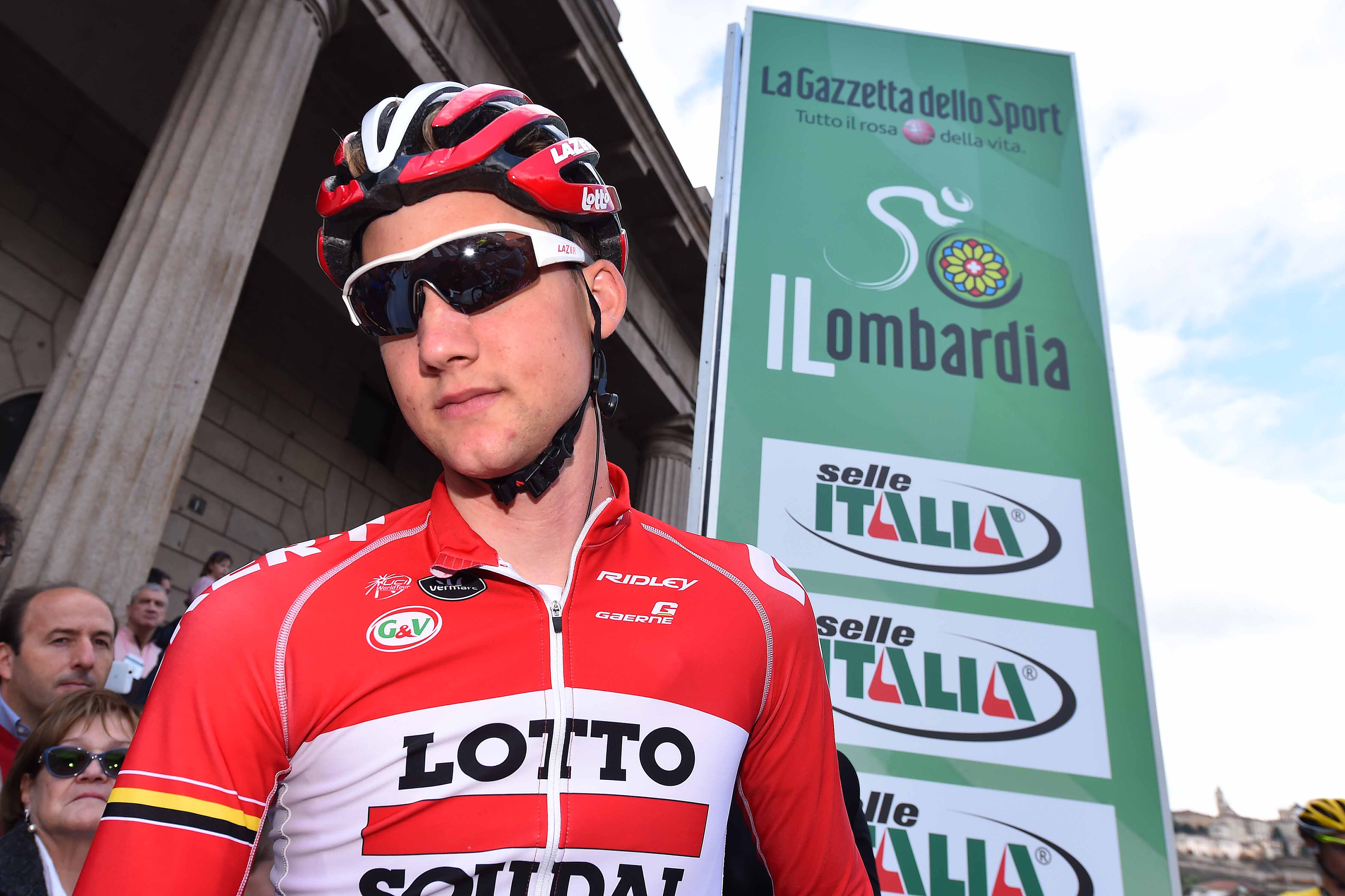
Forty wins. Not bad for a “mid-level” team. Marc Sergeant beams with pride as he looks back on the 2015 season of the team he used to ride for and now manages. Lotto Soudal don’t have at their disposal the bumper budgets enjoyed by the likes of Team Sky and BMC, but they punched above their weight and were the third most prolific team in the professional peloton last term. Etixx-QuickStep, the other Belgian WorldTour outfit which has nearly twice the financial resources, led the way on 53 wins, while Sky were narrowly ahead of Lotto on 43.
For Sergeant, it constituted the most successful season in the team’s 31-year history.
“Of course we had 2011 with [Philippe] Gilbert,” he says, pointing to the Belgian’s glittering campaign that included a remarkable Ardennes triple and a Tour de France stage, as well as 14 other victories. “We, as a smaller team, or let’s say mid-level team, we won the WorldTour as a team, practically with the results of Gilbert alone. That was an outstanding year – it’s hard to improve on that.
“2015 came close and actually went over, because we’ve never had 40 victories before, and we ended up third in that ranking. I said at the beginning of the season, 'we aim for 30 victories – or let’s say 25 but I want more quality'. In the end we ended up not on 25 but on 40, and with a lot of quality. There were 14 WorldTour wins in there – that’s quite amazing.”
In the same way that Gilbert was accountable for two thirds of the team’s win tally in 2011, one man dominated in 2015. Others chipped in to a greater extent than four years ago but there is no getting away from the fact that André Greipel was the leading light, with 16 wins in total and a virtuoso four-stage haul at the Tour de France.
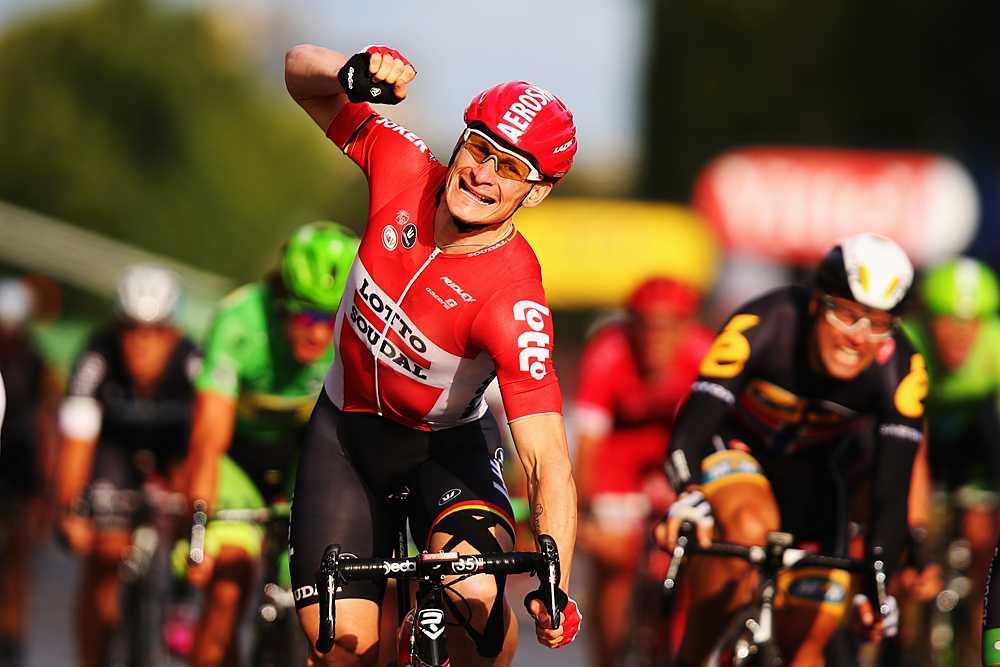
The German’s performances have contributed to a change of focus for Sergeant, who has fully abandoned any general classification ambitions in the Grand Tours. Cadel Evans flew the flag in the mid-to-late 2000’s and Jurgen van den Broeck came to the fore thereafter, but despite twice finishing fourth at the Tour, the Belgian became increasingly unhappy and left for Katusha in the winter saying he had felt “lonely” and unsupported. Building a team around a GC rider had become complicated in 2011 when Greipel arrived on the scene, and last year the German’s improvement with age coalesced with van den Broeck’s impending departure to shape the team’s direction for the season ahead.
“For the Grand Tours we’re not thinking about GC,” said Sergeant. “You have to go for GC or stage wins – the combination is too hard, unless you have the best climber who wins some stages and the GC.
Get The Leadout Newsletter
The latest race content, interviews, features, reviews and expert buying guides, direct to your inbox!
“You have to choose what you want for your money. You want to win some races, have some attractive riding, aggressive riding, for your sponsors. The passion of cycling is about attacking and trying to twin. But in the end you have to make a decision. If you want a GC rider, that costs a lot of money, and the GC rider says ‘I need at least two other guys’. We don’t have that budget, simply put. To make the combination we don’t have it.”
Instead, a sharpened focus on week-long stage races will complement the staple diet of stage wins and one-day races. Rafa Valls was signed in the winter with that in mind, while Tony Gallopin will be expected to contribute on that front - with Paris-Nice a goal - though the Frenchman is more motivated by the one-day races. In addition, Sergeant picks out Tim Wellens, who has won the past two editions of the Eneco Tour, Louis Vervaeke, the rising 22-year-old talent, and new signing Tomasz Marczynski as names he expects to step forward.
Belgian DNA and a stable future
Wellens and Vervaeke are two of a number of young Belgians on the Lotto roster, which also includes the likes of Tiesj Benoot, Tosh van der Sande, Sean de Bie and others. At a time where the cycling-mad Belgian public have been scratching their heads over where the next Tom Boonen will emerge from, Lotto are showing no signs of letting up on their commitment to home riders.
In fact, two thirds of the whole roster are Belgian and, with the team's main source of funding coming from a state organisation, it is, as Sergeant says, very much "the DNA of the team".
“The national lottery, they’ve been sponsoring for 31 years now. I was actually in the first team of Lotto as a young rider. Back then the purpose of the team was like, ‘you turn pro, and we’re going to give you the chance to develop for two or three years, then if you’re good you can go to another team and earn more money – we don’t pay too much but we give you the opportunity’.”
Nowadays, with the team having grown in stature, it cannot be seen as a feeder set-up, though Sergeant is still wary of the risk of losing his prized assets to the heavier hitters.
“It’s true we have a lot of good young Belgian riders, who can be very important for the future,” he says, before adding with a wry smile: "I’ll try and keep them.”
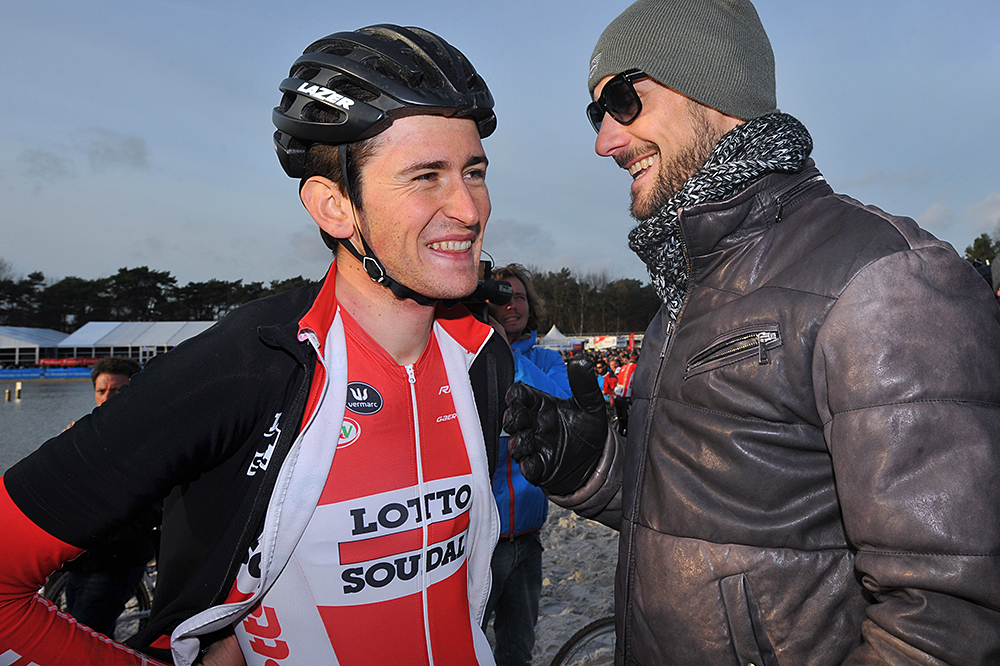
While he cannot guarantee that he’ll be able to keep hold of his best riders in the coming years, Sergeant does at least know that his team will still exist in a few years time, which is more than can be said for many of their rivals nowadays. When Soudal came on board ahead of 2015, Lotto announced a six-year renewal, which will take their sponsorship into 2020 and a 36th consecutive season.
In the context of road cycling’s precarious economic structure, where sponsors come and go like London buses, and stakeholders grapple to monetize a sport that has no paying live audience, that stability is something of an anomaly.
“We have the luxury of having a contract with the main sponsor until 2020 and that means you work on a long term basis, not always working to perform and at the same time looking for other sponsors, which consumes a lot of energy,” says Sergeant – not that he’s resting on his laurels.
“On the other hand they expect a return so we have to deliver as well. It’s not like we say ‘ok, we have until 2020, relax guys.’ They showed last year that we had that commitment, and we had one of the best seasons ever.”
And how do you follow up such a season? You wouldn’t blame Sergeant for basking in the achievements of 2015 and returning to his habitual projections, but the manager is ambitious and is loathe to settle for less.
“We had a long chat about it [2016] and I said, ‘the bar is there, it was your work, our work. Do we lower that? Can we do that?’
“If we see with Tiesj, with Wellens, with Vervaeke, all those young guys, and then with [new signings] Jelle Wallays and Valls, I think we have improved as a team. So we cannot lower the bar – I will not be fixated on that number of 40, but we should be up there again, with high quality wins. They all said, ‘we think so too’.”
Patrick is a freelance sports writer and editor. He’s an NCTJ-accredited journalist with a bachelor’s degree in modern languages (French and Spanish). Patrick worked full-time at Cyclingnews for eight years between 2015 and 2023, latterly as Deputy Editor.
